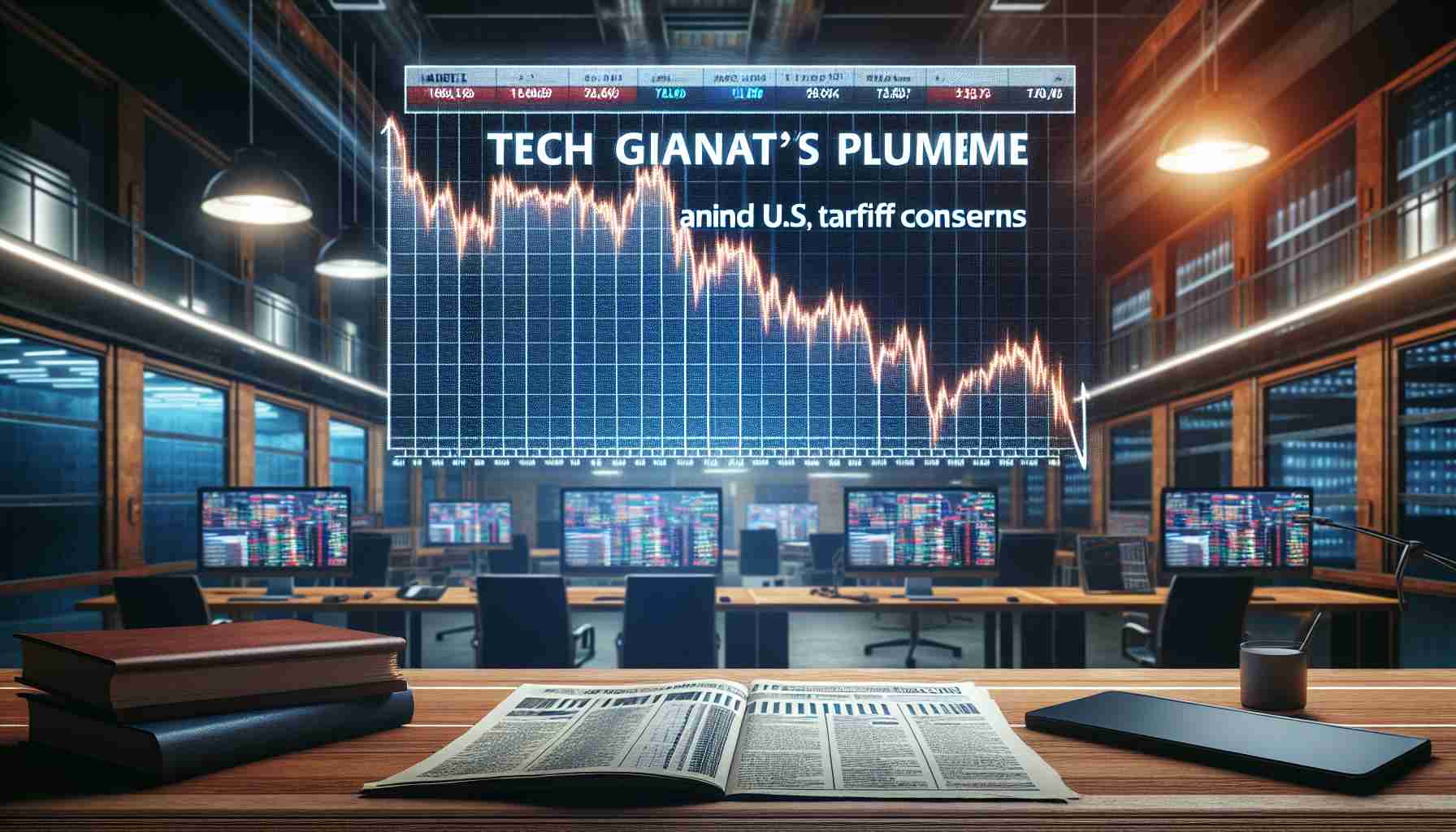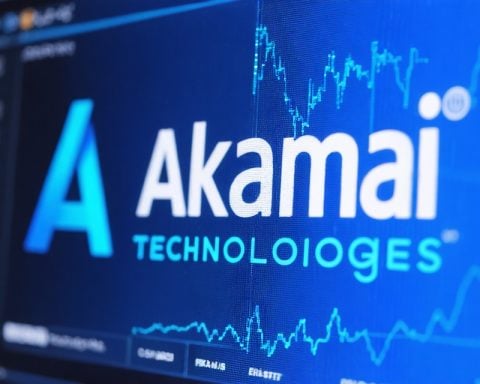Industry insiders are buzzing with concern as Samsung Electronics, the leading figure in the memory chip domain, faces its steepest market slump in over four years. As of Wednesday, the tech giant’s shares hit a trough due to looming apprehensions about impending U.S. tariffs under the new administration of Donald Trump.
During the Korea Electronics Show 2024 in Seoul, Samsung’s performance was notably lackluster compared to other major players like Taiwan’s TSMC and America’s Nvidia. Analysts from BNK Investment & Securities highlighted Samsung’s tardiness in capitalizing on the surging demand for artificial intelligence chips—a sector where its competitors are already thriving.
Industry experts anticipate that Trump’s proposed tariffs on Chinese imports will disproportionately impact Samsung. With a significant portion of its clientele based in China, Samsung finds itself more vulnerable compared to SK Hynix, another Korean firm that’s been bolstering its high-end AI server chip sales in the U.S. market, particularly to big names like Nvidia.
The tariff proposal includes a sweeping 10-percent levy on all imports and a specific 60-percent on Chinese goods, fueling concerns about a potential slowdown in electronics consumption, according to Hyundai Motor Securities. Korean President Yoon Suk Yeol has also expressed worries about potential competitive pricing strategies from Chinese rivals that could further pressure Korean firms.
Samsung’s stock has tumbled by a staggering 34 percent this year, forecasting its weakest annual performance in two decades, while SK Hynix surged by 32 percent and Nvidia saw an impressive 199 percent rise. As the broader KOSPI market also dipped, all eyes are on how Samsung navigates these challenging waters.
Samsung’s Struggles: What It Means For Global Trade and Technology
In recent times, there has been growing concern in the technology sector about Samsung Electronics, a renowned leader in the memory chip industry, facing significant challenges. While the recent focus has been on impending U.S. tariffs and Samsung’s market performance, it’s essential to delve into other aspects of how these dynamics affect people’s lives, communities, and entire nations.
Unveiling the Behind-the-Scenes: Technological Dependency and Innovation
As Samsung battles its steepest market downturn in years, one crucial area to examine is the global dependency on technological innovation and production. The memory chip industry is pivotal to the tech infrastructure worldwide, powering everything from smartphones and laptops to high-end servers. With Samsung’s shares plummeting, there is anxiety about supply chain disruptions that might lead to potential price hikes in consumer electronics, impacting everyday users globally.
Community Impact: Economic Ripple Effects
Communities closely tied to Samsung’s supply chain might experience economic strain as the company struggles. Suppliers and subcontractors who heavily rely on Samsung’s business could face reduced contracts, leading to economic downturns in regions dependent on these jobs. Moreover, countries with significant trade relations with South Korea might see altered economic forecasts, affecting everything from employment rates to GDP growth.
Advantages and Disadvantages of U.S. Tariffs
The proposed tariffs by the Trump administration aim to encourage domestic manufacturing and reduce reliance on Chinese imports. However, imposing a broad levy, especially on technological products, brings both advantages and disadvantages:
– Advantages:
– Encourages domestic production, potentially leading to job creation in the U.S. tech industry.
– Provides an opportunity for smaller companies to fill gaps left by international competitors.
– Disadvantages:
– Could lead to increased production costs for companies like Samsung, ultimately resulting in higher consumer prices.
– Might spur retaliatory tariffs from China, impacting other industries and global trade dynamics.
Controversies: The Balance of Trade Policies and Corporate Strategies
One controversial aspect is the balance of aggressive trade policies with corporate strategies aimed at globalization. Critics argue that heavy tariffs could cripple companies that are pivotal to global technological advancement, like Samsung, and inhibit their ability to innovate or invest in new tech frontiers. On the other hand, supporters believe that these measures protect national interests and promote local industry growth.
Future Outlook: Adaptation and Strategy
How Samsung navigates these turbulent waters will be crucial. Questions arise about their strategic adaptation: Will they shift more operations outside of the U.S. or negotiate different trade routes? How will Samsung leverage its existing technological prowess to regain market share in emerging sectors like AI?
Related Reading Links:
For those interested in understanding more about the intricacies of global trade and the semiconductor industry:
In conclusion, the situation with Samsung is a pivotal example of how interconnected the global economy becomes further complicated by political decisions. How Samsung and other players respond will shape the future of technology and economic landscapes across the globe.























